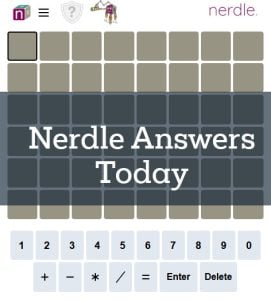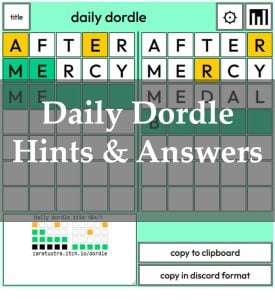Looking for the answers and hints for the Dordle puzzle from June 16, 2025? You’ve come to the right place! Every day, we archive the solutions to help you check your work or get that final clue you need. Below you will find all the answers for yesterday’s Dordle challenge.
Dordle Hints for June 16, 2025
Here are all the official hints to guide you toward the solution.
Dordle Hints
First Word Hints:
- This six-letter word starts with a consonant and ends with a consonant; only one vowel repeats.
- It's an adjective that can describe a manner of speaking or personality trait.
- Often used in descriptions within everyday conversation, as well as literature, to characterize objects or interactions.
- You might use this word to describe the edge of a knife that is no longer sharp enough to cut easily.
- If someone speaks to you without sugarcoating their words, they're being very _____ with you.
Second Word Hints:
- The word you're looking for has two vowels placed consecutively in the middle.
- It's a noun - a thing that you can see and sometimes touch.
- This term is often used in geography and archeology.
- You might find one of these while walking through a park or in a historical site, sometimes created by humans or formed naturally over time.
- If a pitcher were about to start throwing in a baseball game, he would be standing on one.
Spoiler Warning!
The final answers are below. Stop scrolling now if you want to solve it yourself!
Dordle Answer for June 16, 2025
Here is the final, official answer for the Dordle puzzle that was released on June 16, 2025.
Dordle Puzzle #1239 Answers
BLUNT
A tool, weapon, or even a comment that is BLUNT is not sharp or pointed; it is characterized by a lack of sharpness or incisiveness. In common usage, it can refer to someone being very direct and uncomplicated in their manner of speaking. The word stems from Middle English, possibly imitative of a dull, blunted sound.
MOUND
A MOUND is a heap or pile of something, typically earth or stones, that forms a small hill or ground elevation. It is often used to describe raised structures created by people or animals, such as an ant mound. This term originates from the Old English word 'mund', meaning 'protection' or 'hand', which later evolved into the notion of protective earthworks or raised structures.
Read More Daily Game Answers
Check out the answers and hints for our other popular daily word games and puzzles.






